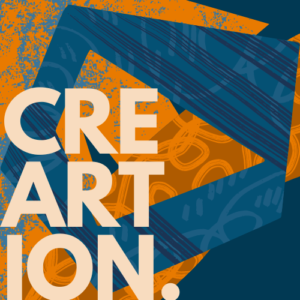Unleashing the Power of Personalization: How Customized Experiences are Revolutionizing Industries
In today’s fast-paced and ever-evolving world, personalization has emerged as a powerful tool that is revolutionizing industries across the board. From retail to healthcare, education to entertainment, organizations are realizing the immense potential of delivering customized experiences to their customers. This article explores the transformative impact of personalization and how it is reshaping various sectors.
The Rise of Personalization
Personalization, in its simplest form, refers to tailoring products, services, and experiences to meet the unique needs and preferences of individual customers. Traditionally, businesses adopted a one-size-fits-all approach, treating every customer as part of a homogeneous group. However, with advancements in technology and data analytics, organizations now have the ability to gather and analyze vast amounts of customer data, enabling them to understand their customers on a deeper level.
This newfound understanding allows businesses to deliver personalized experiences that resonate with their customers on an individual level. By leveraging data insights, organizations can offer tailored recommendations, customized product offerings, and personalized marketing messages that appeal to each customer’s unique tastes and preferences.
The Impact on Industries
The power of personalization extends across a wide range of industries, transforming how businesses operate and interact with their customers. Let’s delve into a few sectors that have been particularly influenced by this revolution.
Retail
In the retail industry, personalization has become a game-changer. Online retailers, such as Amazon, have set the bar high by using advanced algorithms to recommend products based on customers’ browsing and purchase history. This level of personalization not only enhances the shopping experience but also increases customer loyalty and drives sales.
Brick-and-mortar stores are also embracing personalization through technologies like beacon sensors, which can track customers’ movements within a store and send personalized offers or recommendations directly to their smartphones. This not only improves the in-store experience but also enables retailers to gather valuable data on customer preferences and behaviors.
Healthcare
In the healthcare sector, personalization has the potential to greatly improve patient outcomes. By analyzing patient data, including medical history, genetic information, and lifestyle factors, healthcare providers can develop personalized treatment plans and interventions. This tailored approach to healthcare allows for more accurate diagnoses, better treatment outcomes, and improved overall patient satisfaction.
Moreover, personalization is also transforming the pharmaceutical industry. With the rise of precision medicine, medications can now be customized based on an individual’s genetic makeup, increasing their effectiveness and minimizing side effects.
Education
Personalization is revolutionizing the education sector by catering to the unique learning styles and needs of individual students. Adaptive learning technologies use artificial intelligence algorithms to analyze students’ performance data and provide personalized learning experiences. This allows students to learn at their own pace, focus on areas where they need more support, and receive tailored feedback and recommendations.
Furthermore, personalization extends beyond the classroom. Online learning platforms can curate content based on learners’ interests, previous courses taken, and career goals, providing a highly customized educational experience.
Entertainment
In the entertainment industry, personalization has transformed how content is consumed. Streaming platforms like Netflix and Spotify use algorithms to curate personalized recommendations based on users’ viewing or listening history. This level of personalization ensures that users are presented with content that aligns with their preferences, resulting in a more engaging and satisfying entertainment experience.
Additionally, personalization is also impacting live events, such as concerts or sports games. Ticketing platforms can offer personalized ticket recommendations based on users’ past attendance, favorite artists or teams, and even seating preferences.
Frequently Asked Questions (FAQs)
Q: How does personalization benefit businesses?
A: Personalization benefits businesses in numerous ways. It enables organizations to enhance customer satisfaction and loyalty by delivering tailored experiences that resonate with individual customers. Personalization also drives sales and revenue growth by increasing customer engagement and conversion rates.
Q: Are there any privacy concerns associated with personalization?
A: Yes, privacy concerns are a valid consideration when implementing personalization strategies. To address these concerns, businesses must ensure they have robust data protection measures in place, obtain proper consent from customers for data collection, and be transparent about how customer data is used.
Q: Can personalization be applied to B2B industries?
A: Absolutely. While personalization is often associated with B2C industries, it can also be highly effective in B2B sectors. By understanding individual business needs, preferences, and pain points, organizations can deliver customized solutions, tailored recommendations, and personalized account management, fostering stronger business relationships.
Q: How can organizations leverage personalization effectively?
A: To leverage personalization effectively, organizations should invest in advanced data analytics tools and technologies to gather and analyze customer data. This data should be used to create detailed customer profiles and segments, enabling businesses to deliver highly targeted and relevant experiences. Organizations should also prioritize ongoing customer feedback and iterate their personalization strategies based on customer preferences and behaviors.
For more information on the power of personalization, check out these resources:
- Unleashing Personalization: A Game-Changer in the Digital Era
- The Future of Customized Experiences: Revolutionizing Industries
In conclusion, personalization is revolutionizing industries by unlocking the power of customized experiences. From retail to healthcare, education to entertainment, organizations that embrace personalization are gaining a competitive edge and redefining how they engage with their customers. By understanding individual needs and preferences, businesses can deliver tailored solutions, drive customer satisfaction, and propel growth in this era of unprecedented personalization.
